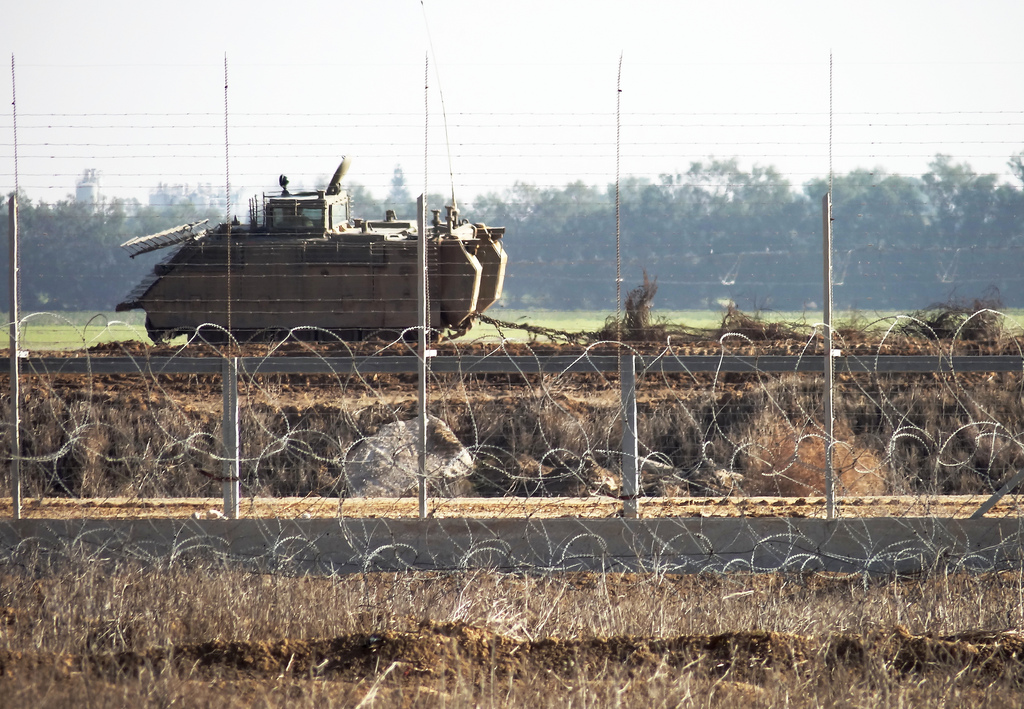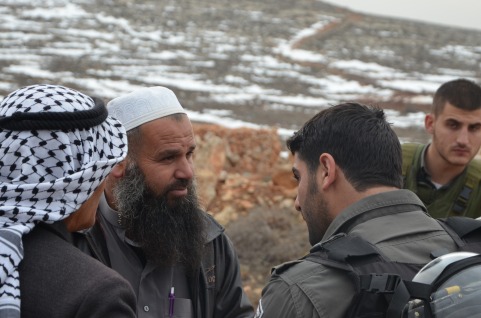Category: Reports
-
Five demonstrators injured in violent Nabi Saleh protest
29th December 2013 | International Solidarity Movement, Ramallah Team | Nabi Saleh, Occupied Palestine On Friday 27th December, during the weekly demonstration in Nabi Saleh, Israeli forces raided the town with a “skunk” (chemical) truck, fired large amounts of tear gas canisters and shot rubbed-coated steel bullets at unarmed protesters. Five people were injured by rubber-coated…
-
Israeli army confiscates land in Qusra
26th December 2013 | International Solidarity Movement, Nablus Team | Qusra, Occupied Palestine Israeli soldiers have declared a road south of Qusra, in Nablus District, a security zone, thus denying villagers access to over 500 dunams of their farmland. At 10:00 this morning, Israeli soldiers positioned themselves at various strategic points around the village. The commander then held…



